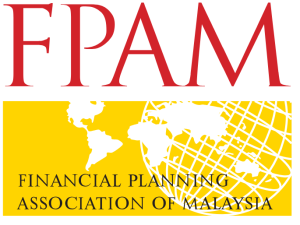Privacy Policy
November 8, 2024
Rudiments of Tax Planning
January 30, 2025By Catherine Yuan
The holiday season is a perfect time for families to gather, reflect, and share what truly matters. Conversations often touch on personal achievements, future goals, and sometimes even business matters. It’s also an ideal opportunity to focus on something deeper: family values. As you gather with loved ones, it’s a chance to align on what you collectively stand for and create a clear vision for the future.
Family values are the foundation that holds everything together. Whether spoken or unspoken, these values shape how family members interact, make decisions, and approach challenges. This is especially crucial in family businesses, where shared principles and alignment are essential for long-term success. As a business leader and head of the family, it’s our responsibility to clearly define these values and pass them down for generations to come.
Why Family Values Matter
- Family values guide decision-making and interactions, shaping both personal lives and business practices.
- Common values like trust, respect, integrity, generosity, loyalty, and commitment ensure alignment and foster unity.
Family values help families work toward common goals, making them more resilient in the face of challenges. In a family business, these values aren’t just about running a company—they are about maintaining trust, ensuring continuity, and preserving the family’s heritage.
How to Preserve and Pass Down Family Values
Maintaining family unity and aligning goals across generations requires proactive effort. To ensure values are passed down, consider the following actions:
- Family Gatherings and Storytelling: Share family history, stories about how the business started, or milestones achieved. This reinforces the importance of core values and helps the next generation feel connected to the family’s journey.
- Formal Documentation: Create a family charter or constitution outlining the family’s values, vision, and mission. This serves as a reference for future generations, ensuring they understand the guiding principles behind the family business and their responsibilities.
- Mentorship: Older family members should take an active role in mentoring younger generations. This is not just about business knowledge but also about guiding them to live according to the family’s core values.
- Regular Communication: Hold regular family meetings to revisit values, discuss business goals, and ensure everyone is on the same page. Open communication ensures alignment and helps avoid misunderstandings.
Aligning Family Values with Business Success
When a family’s personal values align with the goals of the family business, both thrive. For instance, if respect is a core value, it can extend into how employees are treated, creating a healthy, productive work environment. Likewise, a commitment to philanthropy in the family can lead to corporate social responsibility initiatives that reflect the family’s broader vision for giving back to society. This alignment makes the business more authentic and strengthens its reputation. Customers and partners are often drawn to companies with a strong sense of purpose beyond profit—something that is often rooted in shared family values.
NEXT STEPS: Planning for Family Succession and Wealth Preservation
As you reflect on the past year and plan for the future, take time to discuss and document the family’s goals—both personal and business-related. Consider what each family member wants to achieve and how each other can support one another in reaching those objectives. This is especially important when planning for family succession, wealth preservation, or setting up a family office.
- Set Short-Term and Long-Term Goals: Talk about what the family want to achieve in the next year together, whether it’s financial targets, business transitions, or preparing the next generation for leadership.
- Create a Shared Family Plan: Develop a unified vision for wealth preservation, family unity, and succession. Include both immediate and long-term goals to ensure everyone is aligned and committed.
Once your family’s goals are clear, seek advice from an experienced family office consultant. They can help you build and set up the family office, write down a structured family governance and plan, and guide you through the journey. They will also assist in developing an investment strategy and ensure that the wealth is preserved and effectively managed for future generations.
The Crucial Role of Family Leaders
As the head of the family and business, it is our responsibility to clearly define and uphold family values. These values serve as the foundation for our family’s success and continuity, both in business and beyond. Our leadership in passing these values down to the next generation is crucial for maintaining family unity, ensuring smooth succession, and preserving wealth across generations.
By documenting our family values, creating a shared family plan, and consulting with professionals to formalize these efforts, we will lay the groundwork for a lasting legacy. Take the time this holiday season to reflect, discuss, and plan—ensuring that our family and business are aligned and ready for the future.
Conclusion
Family values are the cornerstone of any family business. They ensure long-term success, preserve wealth, and maintain family unity across generations. This holiday season, use the opportunity to reflect on our values, share them with our family, and commit to passing them down. By doing so, we will not only strengthen relationships but also build a legacy that can thrive for generations to come. Make next year the time to formally document the family’s vision, goals, and values. Take the next step by consulting with a family office expert to help guide your planning, ensuring that your wealth and legacy are preserved for the future.
About the Writer
Catherine Yuan is the Executive Director of Confiance Family Office, with over 20 years of experience in international corporate governance. She is a qualified Trust and Estate Practitioner (TEP) with an Honours Degree in International Business and advanced qualifications in wealth management and trust administration.


